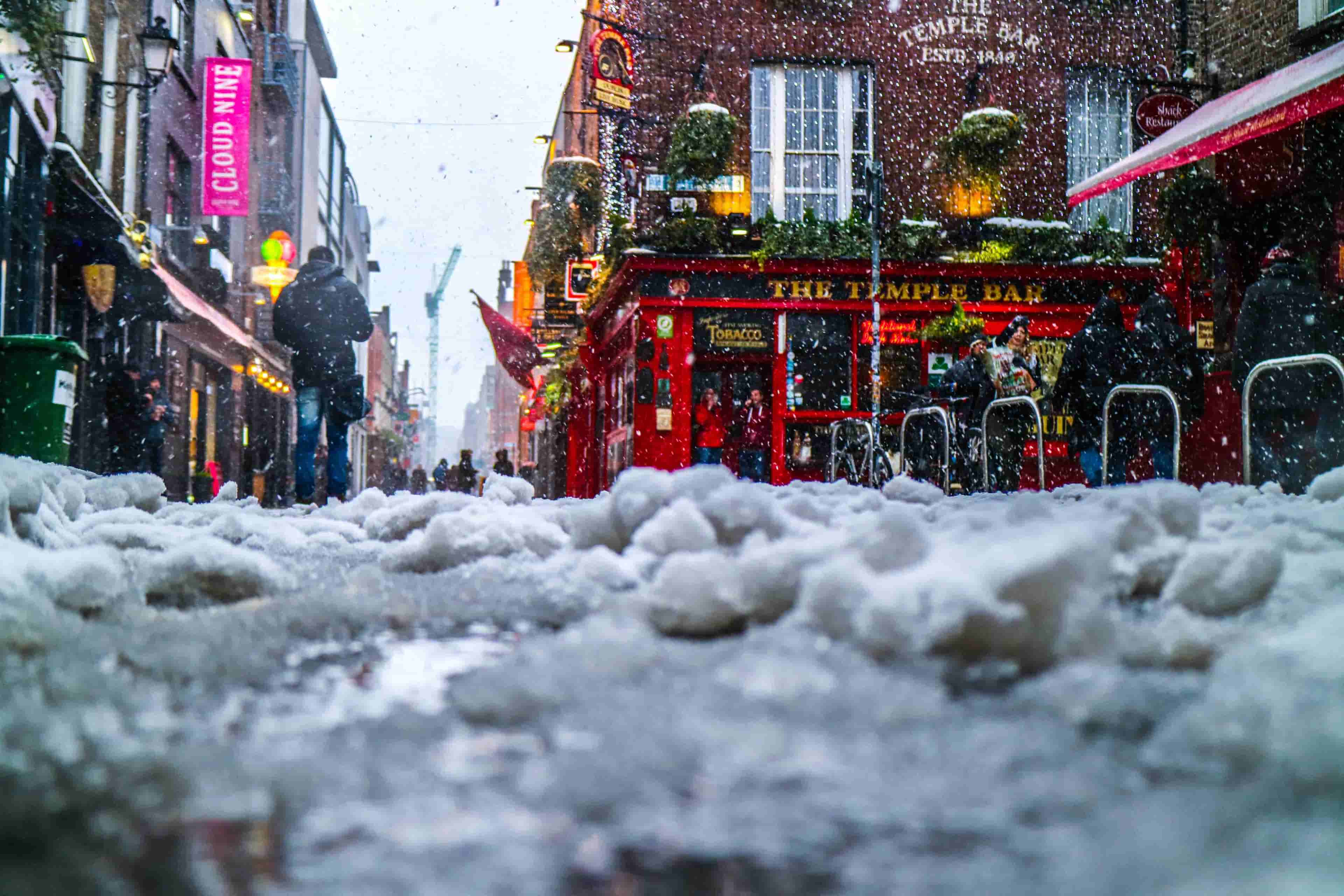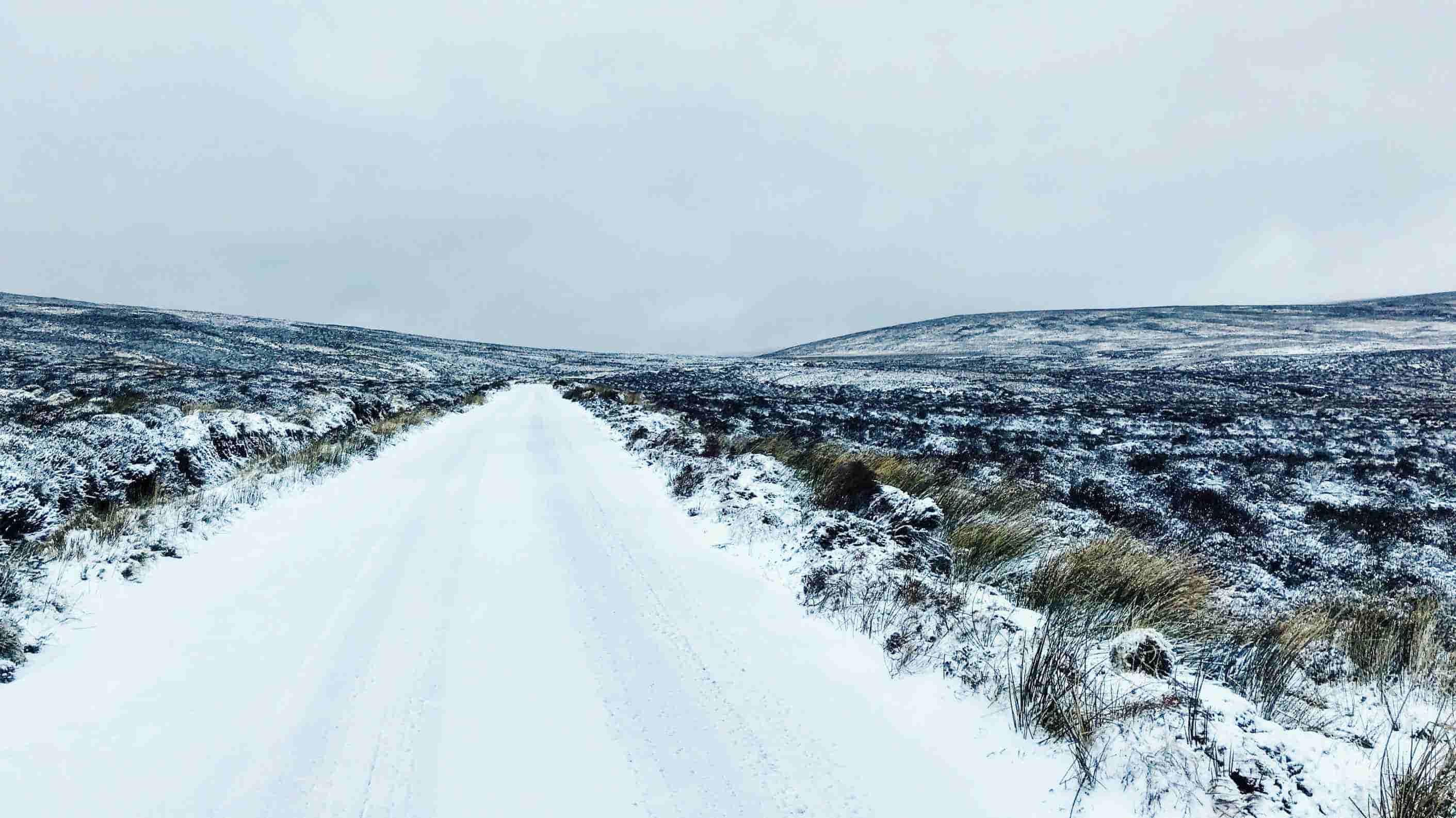
New Year's Day 2026, 2027 and 2028
New Year’s Day, also known as Lá Caille or Lá Bliana Nua, is celebrated on 1 January each year in Ireland.
In 2026, New Year's Day falls on Thursday 1 January. The holiday will be on Friday 1 January in 2027.
| Year | Date | Holiday | Day |
|---|---|---|---|
| 2026 | 1 Jan | New Year's Day | Thursday |
| 2027 | 1 Jan | New Year's Day | Friday |
| 2028 | 1 Jan | New Year's Day | Saturday |
How Ireland Celebrates
Most Irish families have their own New Year's Day traditions that help ease into the new year. The day typically starts with a full Irish breakfast – rashers, sausages, black pudding, and plenty of tea to cure any lingering effects from the night before. Many families gather around the telly to watch the New Year's Day football on RTÉ, while others prefer a quieter start with the morning mass.
For the brave souls, New Year's Day means the annual polar bear dip. Dublin's Forty Foot, Galway's Salthill, and beaches around the country see hundreds of people take their first swim of the year – a tradition that's equal parts invigorating and mad. GAA clubs officially restart their training schedules, and you'll see dedicated players out for their first session, working off the Christmas indulgences.
Many people use the day for visiting family, especially elderly relatives, continuing the Irish tradition of maintaining strong family bonds. Others prefer quiet reflection, making their resolutions for the year ahead while enjoying a peaceful day at home. The pubs might open later than usual, but they're still there for those who fancy a hair of the dog and a bit of craic with the locals.
Is New Year's Day a Public Holiday?
Yes, New Year's Day is an official public holiday in Ireland, recognized under the Organisation of Working Time Act 1997. This means most businesses, offices, banks, and government departments are closed, giving employees a guaranteed day off to recover from New Year's Eve celebrations and spend time with family.
If you're working in retail, hospitality, or essential services, you may still need to work, but you're entitled to premium pay rates or time off in lieu. Most shops remain closed, though some convenience stores and petrol stations may open with reduced hours. Public transport runs on a Sunday schedule, so plan accordingly if you're heading out for New Year's Day activities.
Public Life
New Year's Day in Ireland is a proper day of rest. The streets are quieter than usual, with most people staying home or engaging in low-key family activities. Public transport operates on reduced Sunday schedules, and most retail outlets, banks, and government offices remain closed. Even Dublin city centre, usually bustling with activity, takes on a more relaxed atmosphere.
Emergency services remain fully operational, and some pubs and restaurants may open with limited hours, particularly those in tourist areas. Museums and attractions often have special New Year's Day hours, while churches typically hold special morning masses. The day marks the official end of the Christmas holidays for most people, with normal schedules resuming on January 2nd.
Background

New Year's Day in Ireland has deep roots that go back much further than you might think. While today we celebrate on January 1st, this wasn't always the case. The ancient Celtic calendar marked the new year at Samhain (what we now call Halloween), when the veil between worlds was thinnest and the old year died to make way for the new.
Our ancestors knew how to throw a proper celebration – Samhain was a three-day festival where communities gathered for feasts, storytelling, and divination. The spirits of the dead were welcomed back, and people would light bonfires to guide them home. These traditions still echo today in our Halloween celebrations, though we've moved the "new beginning" feeling to January.
It wasn't until 1752 that Ireland (along with Britain) finally adopted the Gregorian calendar and shifted New Year's Day to January 1st. Before that, we celebrated the new year on March 25th – Lady Day or the Feast of the Annunciation. This change wasn't just about dates; it represented Ireland's gradual integration into the wider European world, even as we maintained our own distinct cultural identity.
Today's New Year's Day traditions in Ireland blend the old with the new. You'll still find people making resolutions (a practice with ancient roots), sharing meals with extended family, and taking time for quiet reflection. The weather might be miserable, but there's something uniquely Irish about facing the new year head-on, with a bit of optimism and a good sense of humour about whatever lies ahead.
Previous Years
| Year | Date | Holiday | Day |
|---|---|---|---|
| 2025 | 1 Jan | New Year's Day | Wednesday |
| 2024 | 1 Jan | New Year's Day | Monday |